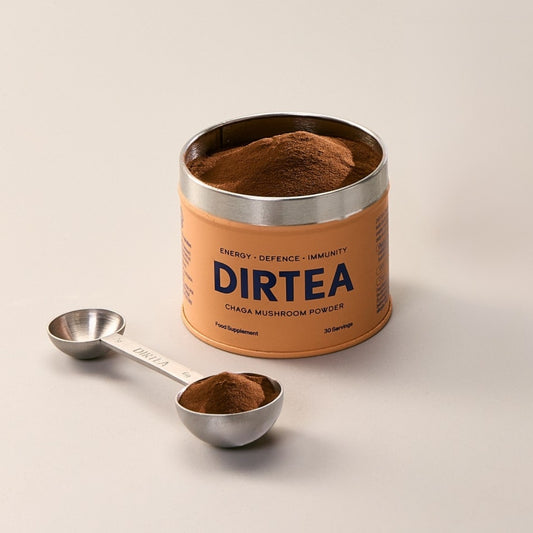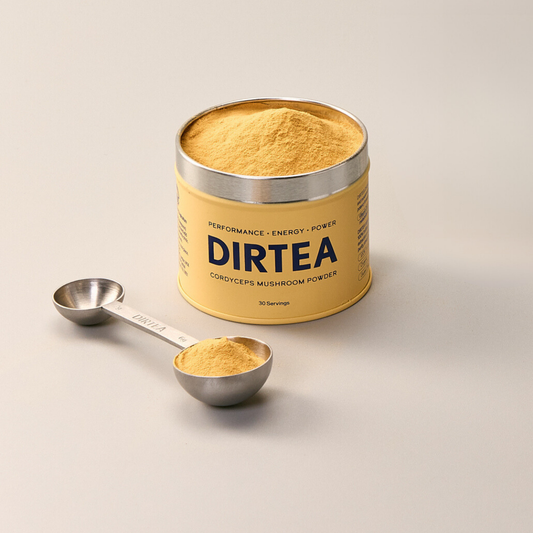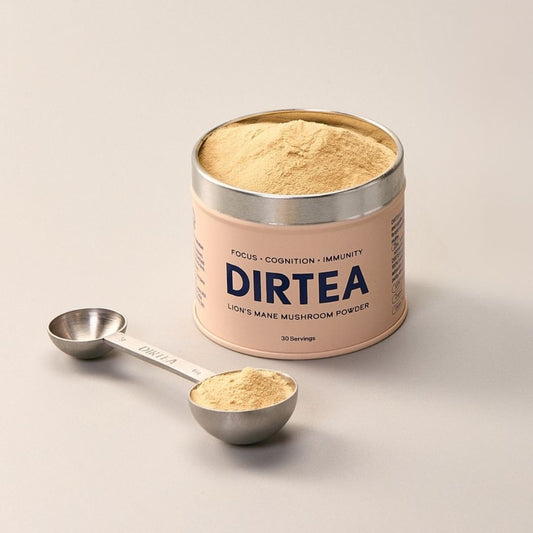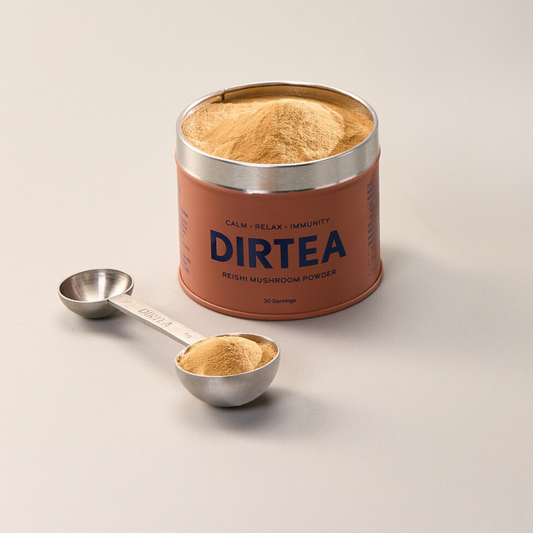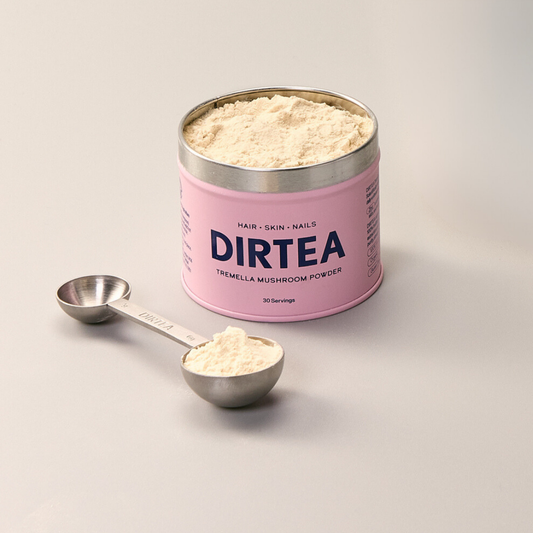The Gut–Brain Axis: The Gut as the Second Brain

Share
Why Your Gut Talks to Your Brain
Have you ever had “butterflies” before a big presentation? Or noticed your digestion feels off during stressful weeks? These aren’t just passing sensations—they’re the work of the gut–brain axis, a two-way communication network between your digestive system and your brain.
Far from being just a place where food is digested, your gut contains over 100 million neurons—earning it the nickname “the second brain.” According to the Cleveland Clinic, around 90% of the body’s serotonin is produced in the gut, specifically in the cells lining the gastrointestinal tract. From there, it enters circulation and is taken up by platelets, while only about 10% is made in the brain itself.
As research grows, it’s becoming clear that the state of our gut plays a central role in how we think, feel, and perform. That’s why nurturing the gut–brain axis through nutrition, rituals, and natural support has become a key focus in modern wellness.
What Is the Gut–Brain Axis?
The gut–brain axis describes the constant conversation happening between the central nervous system (CNS) and the enteric nervous system (ENS) in the gut. This dialogue works in multiple ways:
- Neural pathways: The vagus nerve acts as the “information highway,” sending real-time messages between the gut and the brain.
- Immune signalling: Roughly 70% of the body’s immune system is located in the gut, and inflammatory markers here can influence mental well-being.
- Hormones and neurotransmitters: Compounds like serotonin, dopamine, and GABA are synthesised in the gut and regulate mood, stress, and focus.
- Gut microbiota: The trillions of microbes in your gut produce metabolites that influence digestion, energy, and even cognition.
Put simply: the gut isn’t just processing food—it’s co-authoring how you feel.
Why Scientists Call the Gut the “Second Brain”
The gut has its own nervous system, the enteric nervous system (ENS), which can act semi-independently of the brain. With over 100 million neurons, it controls digestion, motility, and enzyme release without always needing input from the brain.
This explains why:
- Nerves in your stomach fire when you’re anxious, giving you “butterflies.”
- Stress can cause digestive upset or bloating.
- A balanced gut often leaves you feeling calmer, clearer, and more resilient.
The “second brain” idea isn’t just metaphorical—it reflects how deeply interconnected gut and mental health really are.
The Modern Gut Challenge
Unfortunately, today’s lifestyle often disrupts the gut–brain axis. Some of the biggest disruptors include:
- Stress: Chronic stress alters microbiome diversity and increases gut permeability.
- Diet: High-sugar and ultra-processed diets can encourage an imbalance of gut bacteria.
- Sleep deprivation: Studies show poor sleep reduces microbiota diversity.
- Excess caffeine and alcohol: Overuse can irritate digestion and impact neurotransmitter production.
This cocktail can leave you feeling foggy, anxious, or drained—proof that gut health and mental clarity are deeply intertwined.
Functional Mushrooms and the Gut–Brain Axis
At DIRTEA, we bring together ancient practices and modern science. Functional mushrooms have long been used in Traditional Chinese Medicine (TCM) to support balance and resilience. Today, when combined with essential vitamins, they can be powerful allies for the gut–brain axis.
Here’s how our mushroom blends fit into this picture:
Lion’s Mane – The Focus Mushroom
Lion’s Mane contains naturally occurring compounds (hericenones, erinacines) that are being explored in research for their role in nerve growth factor (NGF). In DIRTEA’s Focus Powder, we fortify with zinc and Focus Gummies, it’s paired with B-vitamins—nutrients that contribute to normal cognitive function and help reduce tiredness and fatigue.
About digestion: Early studies suggest Lion’s Mane’s polysaccharides may have prebiotic-like properties, helping to nourish beneficial gut bacteria and support overall digestive balance when used alongside a varied, fibre-rich diet.
Best ritual: A morning Lion’s Mane matcha to sharpen focus and clarity while supporting your gut–brain link.
Reishi – The Calm Mushroom
Known as the “mushroom of immortality,” Reishi has been traditionally used to support relaxation and balance. At DIRTEA, our Calm Powder contains organic B12, which supports normal psychological function and energy metabolism. Since stress is a major disruptor of the gut–brain axis, calming rituals with Reishi can help restore equilibrium.
Best ritual: A Reishi-infused hot cacao before bed, supporting evening wind-down and digestive calm.
Chaga – The Defence Mushroom
Chaga is rich in antioxidants and polysaccharides. In DIRTEA’s Immunity Powder, we infuse vitamin B12 and Gummies, we blend Chaga with Vitamin C and B vitamins—nutrients that support immune defence. Because the gut houses most of the body’s immune system, nurturing it with antioxidant-rich foods is key to resilience.
Best ritual: A daily Chaga tea to reinforce gut balance and immune support.
Cordyceps – The Energy Mushroom
Cordyceps has long been associated with stamina and vitality. In our Performance Powder, we incorporate vitamin B12, and Performance Gummies are combined with B vitamins and Vitamin C, which support normal energy metabolism. Since gut imbalance often leads to fatigue, Cordyceps rituals can help maintain sustainable energy.
Best ritual: A mid-morning Cordyceps latte for smooth, non-jittery vitality.
Tremella – The Beauty Mushroom
Tremella is rich in natural polysaccharides that hold water, supporting hydration from within. In DIRTEA Beauty Powders, we incorporate zinc, and in the Gummies, Tremella is paired with Biotin, Vitamin C, selenium, zinc, Vitamin A and Vitamin E.—nutrients that support normal skin, hair, and nails. This is a reminder that gut health often shows up on the skin.
Best ritual: Add Tremella to your evening smoothie or night-time skincare ritual for an inside-out glow.
Daily Habits to Support the Gut–Brain Axis
Beyond mushrooms, here are small, science-backed rituals to nurture your gut–brain connection:
- Eat fibre-rich foods: Variety is key for microbiota health.
- Include fermented foods: Kimchi, kefir, and sauerkraut can introduce beneficial microbes.
- Prioritise sleep: Aim for 7–9 hours to support microbiome diversity.
- Manage stress: Practices like meditation or breathwork calm the vagus nerve.
- Stay hydrated: Digestion and neurotransmitter function rely on adequate hydration.
- Build rituals: Consistency (like a daily Lion’s Mane latte) matters more than occasional fixes.
Final Thoughts: Listening to Your Second Brain
Your gut and brain are in constant conversation. By looking after your gut microbiome, calming your nervous system, and nourishing yourself with nutrient-dense rituals, you’re not just supporting digestion—you’re shaping mood, focus, and resilience.
DIRTEA’s functional mushrooms and vitamin blends offer a way to bring ancient wisdom into modern life. They help you create daily rituals that keep the gut–brain axis thriving—so both your first and second brain are working in harmony.
FAQs
Q: Why is the gut called the second brain?
Because it has its own nervous system (the enteric nervous system, or ENS), with over 100 million neurons, capable of communicating directly with the brain.
Q: Can functional mushrooms really help my gut?
Mushrooms like Reishi, Chaga, and Tremella contain polysaccharides and fibre-like compounds that can support overall digestive balance when paired with a healthy diet.
Q: How long until I notice effects?
Functional mushrooms work best when taken consistently over time. Think of them as daily allies rather than quick fixes.
Q: Do DIRTEA powders and gummies contain sugar?
No—our products are 0 sugar, vegan, and made with natural ingredients only.
Q: Can I combine different mushrooms?
Absolutely. Our range is designed to be layered according to your needs—Focus Powder in the morning, Calm Powder at night, and Immunity Gummies daily.
References
- Cleveland Clinic. (2022, March 18). Serotonin: What is it, function & levels? Cleveland Clinic. https://my.clevelandclinic.org/health/articles/22572-serotonin Cleveland Clinic










